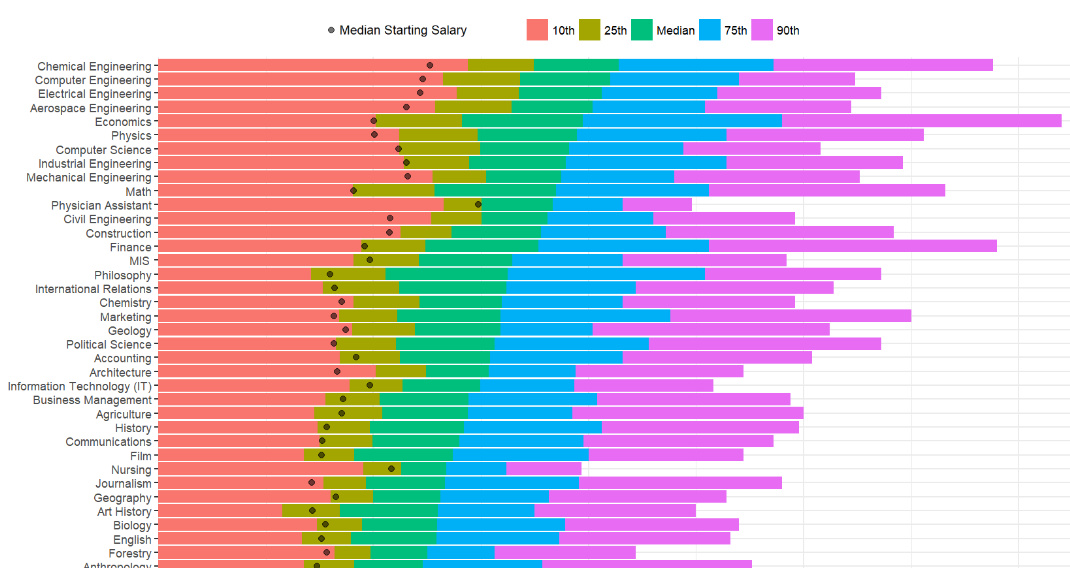No I would not be wrong.
The question wasnt “do plumbers, on average earn less that degreed workers”, it was “Can you give your family a middle class lifestyle as a welder or plumber?” and since the media for a plumber is
55K or 59K on my cite lower, and your chart shows 50K as right in the middle of the green (median) up thru art history, they can. And the 25% percentile for plumbers is $41K ,whereas the 25% for many liberal arts seems to be around 25-30K.
Not to mention a Union plumber can earn up to $222,679.
https://www.comparably.com/salaries/salaries-for-union-plumber-in-los-angeles-ca
So, while a Engineering degree is a path to larger earnings, a art history degree may not be. With two years in a free (or close to it) community college, you can come out earning $40K or so, compared to maybe $25k after four years and a large debt.
This article makes it clear that trade school can be a excellent choice:
and then there is this: Yes, many college graduates make more money—but less than half of students finish the degrees they start.
Trade School vs. College Degree Salaries: Who Makes More? - College Finance.
Even with these averages, trade school can still be a lucrative path. Here’s why:
First, while college graduates earn more, on average, there are many occupations where trade workers earn more than degree holders. For example, the average secondary school teacher earns just $59,000. All seven of the highest-paying vocational jobs pay more than $59,000. So, averages do not tell the entire story.
Second, average earnings do not consider the difference between salaried and hourly workers. Hourly workers may be eligible for overtime and other incentives that companies generally do not give to salaried employees. Also, trade workers usually belong to unions that advocate for better wages and working conditions. Because nonunion workers earn just 80% of what unionized workers earn, joining a union is another way to close the gap between college and trade school earnings.
Third, the numbers do not consider the fact that trade school graduates will have more earning years. A future doctor might have high earning potential, but it will take at least 11 years to become a doctor. Because trade school takes far less time, graduates will have many more years to earn money.
Finally, these numbers do not consider loans. According to the Federal Reserve, the average American pays nearly $400 per month in student loan debt. Because a trade school certification costs far less than a bachelor’s degree, trade workers will spend far less of their income repaying debt. Therefore, they will have more disposable monthly income. This will make them better able to buy homes and meet other important life goals.



